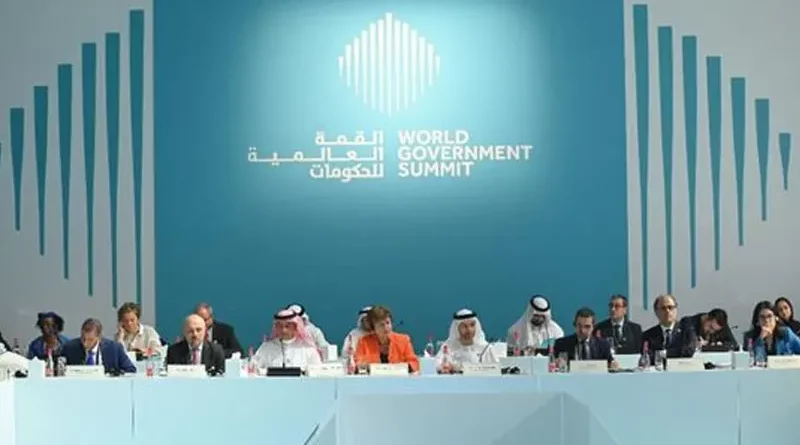World Government Summit 2023: Back to the Future
DUBAI: A notion about what prompted once-in-a-generation shifts at the US Federal Reserve was put up by economist Julio Rotemberg, Harvard Business School, in 2013: penitence. The economy would experience something terrible, like the Great Depression of the 1930s, the enormous inflation of the 1970s, or the 2008-2009 Global Financial Crisis. The culprit would be the central bank. Then it would consider the criticisms and alter its strategy.
The extensive panel discussions of the ongoing World Government Summit (WGS) 2023, opened in Dubai today, are reminiscent of the same notion: another occasion for penitence. The increase in global inflation to 9.8 percent has flabbergasted investors, analysts, and policymakers. After arguing that inflation was just a post-pandemic anomaly that would pass in a few months for the majority of 2021, central banks have unexpectedly revised their position. In 2022, interest rates have been increased by 33 central banks around the world, according to the Bank for International Settlements, the central bank of central bankers.
Since the 1980s, the Fed’s monetary policy has never been tightened as much. The Bank of England’s governor, Andrew Bailey, spoke of “the largest challenge to the monetary-policy regime” in its history.
Most of the international government officials, thought leaders, global experts and decision makers participating in this year’s edition of the WGS concur on the panacea to the ongoing economic crisis: multilateral cooperation and financial collaboration.
When the world faced an inflation breakout in the 1980s, monetary and fiscal policy collaborated to drain the system of excessive expenditure. And this is what IMF Chief Kristalina Georgieva doubled down on during her speech before the summit.
“For some countries, domestic policies are not enough to resolve another pressing challenge: unsustainable debt”, said Georgieva. “Crushing debt burdens weigh on health, education, and infrastructure spending. This hits the vulnerable hardest, but it is also a shared problem for the region and the world. And this is where teamwork comes in. With so many public and private creditors, unsustainable debt can only be addressed through multilateral cooperation.”
Addressing the opening session of the global event, Ngozi Okonjo-Iweala, Director-General of the World Trade Organisation (WTO), called for bolstering global cooperation and working towards “reglobalisation”, as opposed to trade fragmentation, or seeking trade primarily with only a small set of allies.
Carla Haddad Mardini, Director of UNICEF’s Private Fundraising and Partnerships Division in Geneva, told the Emirates News Agency (WAM) that any solution would not happen by one entity alone. “The challenges are so big. The problems are so wicked, and there are global problems that need to be tackled. Working at the intersection of public and private sectors is required to reach, scale, speed and sustainability.”
In brief, one can safely say that effective coordination of monetary and fiscal policy is needed if overall economic performance is to be optimised and maintained under current volatile global conditions.

